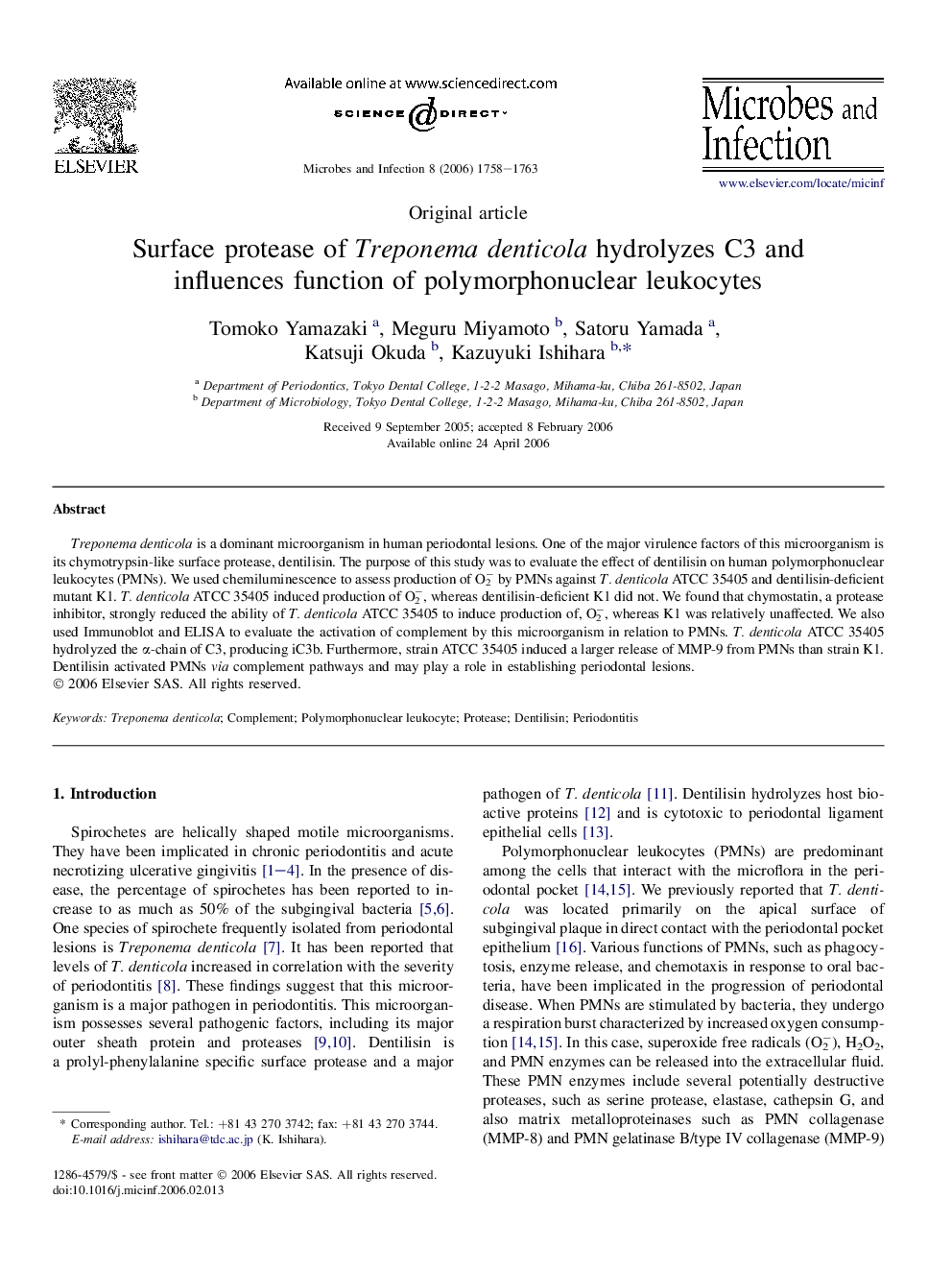| Article ID | Journal | Published Year | Pages | File Type |
|---|---|---|---|---|
| 3415850 | Microbes and Infection | 2006 | 6 Pages |
Treponema denticola is a dominant microorganism in human periodontal lesions. One of the major virulence factors of this microorganism is its chymotrypsin-like surface protease, dentilisin. The purpose of this study was to evaluate the effect of dentilisin on human polymorphonuclear leukocytes (PMNs). We used chemiluminescence to assess production of O2− by PMNs against T. denticola ATCC 35405 and dentilisin-deficient mutant K1. T. denticola ATCC 35405 induced production of O2−, whereas dentilisin-deficient K1 did not. We found that chymostatin, a protease inhibitor, strongly reduced the ability of T. denticola ATCC 35405 to induce production of, O2−, whereas K1 was relatively unaffected. We also used Immunoblot and ELISA to evaluate the activation of complement by this microorganism in relation to PMNs. T. denticola ATCC 35405 hydrolyzed the α-chain of C3, producing iC3b. Furthermore, strain ATCC 35405 induced a larger release of MMP-9 from PMNs than strain K1. Dentilisin activated PMNs via complement pathways and may play a role in establishing periodontal lesions.
